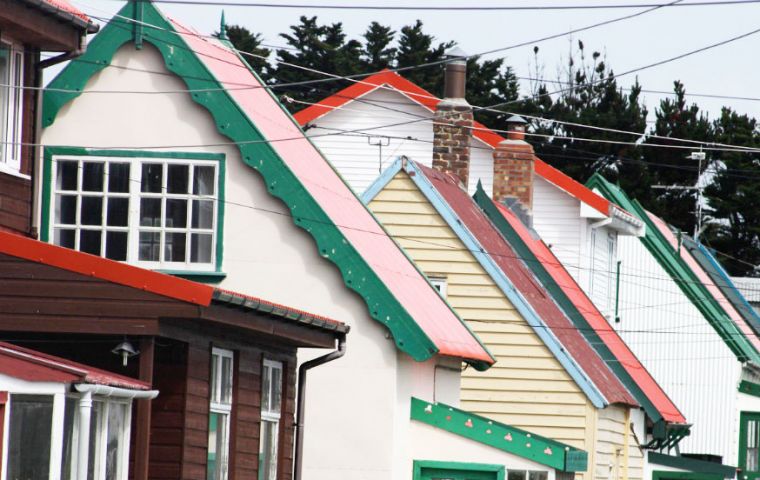MercoPress. South Atlantic News Agency
Falklands releases “State of the Economy” and “Living Wage” reports
 'A Living Wage for the Falkland Islands’ provides the first estimate of earnings necessary to comfortably cover all of a household’s outgoings in the Falkland Islands. (Pic CNN)
'A Living Wage for the Falkland Islands’ provides the first estimate of earnings necessary to comfortably cover all of a household’s outgoings in the Falkland Islands. (Pic CNN)  Head of the Policy Unit, Jamie Fotheringham said the documents will provide helpful information of the Falklands people and for this year's FIG budget preparation
Head of the Policy Unit, Jamie Fotheringham said the documents will provide helpful information of the Falklands people and for this year's FIG budget preparation The Falkland Islands has released two new documents, the Islands State of the Economy and on income needed to comfortably cover all of a household's expenses. The Falklands enjoys one of the highest standards of living in the Americas with low inflation and virtually full employment.
“These documents have been in the making for some time, and as well as providing helpful information for the people of the Falkland Islands, they will be a useful tool in budget preparation for FIG this year,” explained Head of the Policy Unit, Jamie Fotheringham.
The State of the Falkland Islands Economy’ document provides an accurate statement of how the Falkland Islands economy is performing, analysis of key issues and challenges moving forward and an industry-by-industry breakdown of the economy.
Economist Ville Peltovuori was responsible for preparing ‘The State of the Falkland Islands Economy’ and is excited to see the project come to fruition: “It was a big project, pulling together information from each sector of the economy, finding the trends, and examining some of the challenges the Falkland Islands might face in the future. We haven’t made any official recommendations in the report, the goal was to be able to demonstrate the state our economy is currently in.”
'A Living Wage for the Falkland Islands’ provides the first estimate of earnings necessary to comfortably cover all of a household’s outgoings in the Falkland Islands.
Jamie Fotheringham explained the process behind the Living Wage calculation. “This has been a really interesting piece of work for the Policy Unit to undertake, and something we’ve spent a lot of time on. A nutritionist helped us model a balanced diet to help us calculate the cost of food needed to maintain a healthy lifestyle, we looked at the cost of heating and electricity, a whole range of things. What’s important to note is that we looked only at things a household might need, rather than everything a household might spend money on. For this reason, alcohol and tobacco haven’t been included, and nor has a vehicle. But we have looked at the cost of nursery care, for example. In almost every case, the cost of food was the single biggest component of a household’s outgoings.”




Top Comments
Disclaimer & comment rules-

-

-

Read all commentsAnd why doesn't Santa Cruz, Chubut & TdFuego present the same living standards with identical climates and resources.???
Mar 25th, 2015 - 10:14 pm 0Because they have being governed by NARCO-KIRCHNERISM since the 1990s and they parasite the Argentine central provinces. Filthy leeches them Patagonians.
I can't wait for Paul Cedron to get on this one:
Mar 25th, 2015 - 10:51 pm 0”What economy? You call that an economy? How can 200 isleters on some stinking rocks have an economy? What a complete joke! They don't even have a decent hotel, coffee shops, restaurants or a CT scanner. Why doesn't this 4th rate publication look at a proper country with proper cities instead of these stupid islets? And who did the report anyway? Some British idiot who looks like he should be selling tickets on a 1970s double decker bus (sorry Jamie; please understand I am in character!). Stupid ridiculous fucking islets!
#2
Mar 26th, 2015 - 12:16 am 0Question, weren't you originally Joe Blogs?
Or are you a troll?
You might also explain WHY the islanders would prefer an economy controlled by Argentina...
Commenting for this story is now closed.
If you have a Facebook account, become a fan and comment on our Facebook Page!